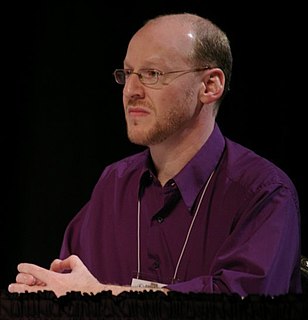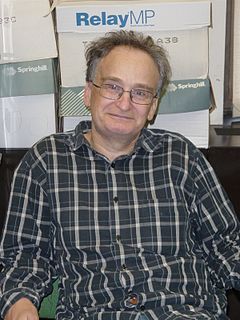A Quote by Dorothy L. Sayers
the truth and value of a theory does not depend on the number of people who are interested in it - otherwise you might compare the number of people who follow the predictions of astrologers in the daily press with those who attend lectures by Einstein, and conclude that astrology was more valuable and true than physics.
Related Quotes
If you're making music, you must want to turn other people on to it, whether you're number one in the charts or number 60. I don't know, that's a commercial thing, but just the fact that other people like you... there's no point in making music, otherwise. Otherwise, you might as well make it in your bedroom and leave it there.
People are interested in certain ideas, in certain periods, and then that moves, and okay, now people are more interested in studying this, and there is no perfect balance, and how would you know what the perfect balance is? I mean, what does it mean to have too many Beethoven chairs and too few Stravinsky chairs? I mean, that's kind of a value judgment that isn't really based on humility. We don't know what the optimum number is, so let people figure this out on their own. People are more interested in Beethoven than Stravinsky? Great! Why would that bother me?
I think you have to satisfy yourself first and foremost. There have been records I've been really, really pleased with that haven't connected with people. But I felt good about them. If you're making music, you must want to turn other people on to it, whether you're number one in the charts or number 60. I don't know, that's a commercial thing, but just the fact that other people like you... there's no point in making music, otherwise. Otherwise you might as well make it in your bedroom and leave it there.
Astrology ... makes vague predictions that can always be adapted after the fact to fit observations, as we'll see. Astrologers don't seek causes at all, for a good reason: There isn't any cause to astrology. If you look for some underlying reason, some connection between the stars and planets and our lives, you won't find any. For astrology to sell, buyers must not seek out the fundamental principles behind it, because if they do they'll see that there is none.
I don't pretend to be a general or an admiral or anything else, but I just - every time I see - I see President [Barack] Obama get up, "Ladies and gentleman, we are sending 50 people to Iraq," 50.So that's bad in two ways. Number one, it's such a low number that the enemy's saying is that all?And number two, when you think 50, those people now have a target on their back. They wanna find those 50 people and they look for those 50 people.
Astrologers were greatly impressed, and misled, by what they believed to be confirming evidence-so much so that they were quite unimpressed by any unfavorable evidence. Moreover, by making their interpretations and prophecies sufficiently vague they were able to explain away anything that might have been a refutation of the theory had the theory and the prophecies been more precise. In order to escape falsification they destroyed the testability of their theory. It is a typical soothsayer's trick to predict things so vaguely that the predictions can hardly fail: that they become irrefutable.
Many people believe that the grains of sand are infinite in multitude ... Others think that although their number is not without limit, no number can ever be named which will be greater than the number of grains of sand. But I shall try to prove to you that among the numbers which I have named there are those which exceed the number of grains in a heap of sand the size not only of the earth, but even of the universe


































